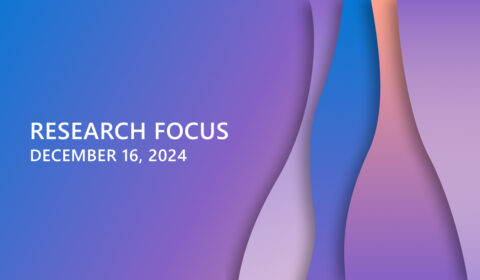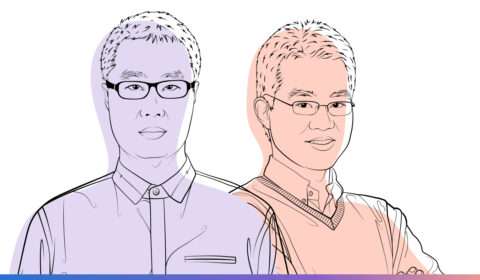微软研究院博客

NeoMem: hardware/software co-design for CXL-native memory tiering; Chimera: accurate retrosynthesis prediction by ensembling models with diverse inductive biases; GA4GH task execution API enables multicloud task execution.

| Lidong Zhou 和 Eliza Strickland
Just after his NeurIPS 2024 keynote on the co-evolution of systems and AI, Microsoft CVP Lidong Zhou joins the podcast to discuss how rapidly advancing AI impacts the systems supporting it and the opportunities to use AI to enhance systems…

| Christopher Bishop 和 Eliza Strickland
From the Microsoft Booth at NeurIPS 2024, Microsoft Research AI for Science Director Chris Bishop discusses how AI is changing approaches to scientific advancement—from drug discovery to weather forecasting—and the profound impact it can have on the world.

| Gretchen Huizinga, Jindong Wang, 和 Steven Euijong Whang
Researcher Jindong Wang and Associate Professor Steven Euijong Whang explore the NeurIPS 2024 work ERBench. ERBench leverages relational databases to create LLM benchmarks that can verify model rationale via keywords in addition to checking answer correctness.

| Amber Tingle 和 Weizhu Chen
Next-token prediction trains a language model on all tokens in a sequence. VP Weizhu Chen discusses his team’s 2024 NeurIPS paper on how distinguishing between useful and “noisy” tokens in pretraining can improve token efficiency and model performance.

| Amber Tingle 和 Dylan Foster
Can existing algorithms designed for simple reinforcement learning problems be used to solve more complex RL problems? Researcher Dylan Foster discusses the modular approach he and his coauthors explored in their 2024 NeurIPS paper on RL under latent dynamics.

| Gretchen Huizinga 和 Pranjal Chitale
Pranjal Chitale discusses the 2024 NeurIPS work CVQA. Spanning 31 languages and the cultures of 30 countries, this VQA benchmark was created with native speakers and cultural experts to evaluate model performance across diverse linguistic and cultural contexts.

